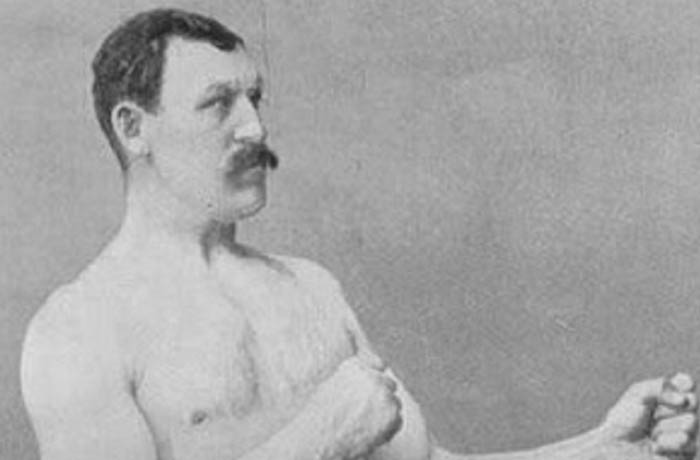Lifestyle
What Does It Mean To Be A Man In 2015?
“In today’s pop-culture landscape there’s no single archetypal ideal that we’re supposed to emulate.”

What does it mean to be a man? It’s a question that has plagued the male psyche for decades, but the bigger, and more important, question is: does it even matter?
The definition, and society’s perception, of masculinity has changed drastically over the years to the point where a paradox exists with trying to balance the new-age metro-sexual and old-school “rub some dirt in it” mentality, but where are we heading?
In the far-flung misty past, being a man was a simple thing. You left school, got a job, got married, had children, drank heavily, played golf, had an aborted affair, never spoke about your feelings under any circumstances, and died of a heart attack aged 56. Easy,” writes Max Olesker in his new column on The Guardian. “But we’re well into the 21st century and the rule book for men (now an ebook) has been torn up (corrupted). ”
Olesker references author and journalistMark Simpson, who says “no one really knows what masculinity is, or is for, these days”, and Olesker can’t help but agree.
“It feels as if, as the traditional ideals of the 20th-century man – strong, stoic, repressed – begin to fade away, nothing has stepped in to replace them. In today’s pop-culture landscape there’s no single archetypal ideal that we’re supposed to emulate.
A brief survey of prominent contemporary male figures – both fictional and non – on film, TV and the internet offers extremely mixed results. Whom should we aspire to be like? Christian Grey, the unpleasant, controlling billionaire with a penchant for rough sex and dubious attitudes towards consent? The impossibly perfect ultra-dad that David Beckham has become since his latest firmware upgrade? The resurgent Dapper Laughs, with his bantz-errific lad drivel? The bewildered, incredulous everyman played by Louis CK in Louie?”
The idea that men are under immense pressure, whether self-apposed or not, to be key providers in their lives, and this is causing a change in the mentality of young males.
In historian George Mosse’s The Image of Man, masculinity in western culture is closely tied to the fears and hopes of modern society. As our own hopes become more amorphous, so too does the “purpose” of masculinity. Young men have given up on the dream of the job-for-life, house, kids, Alsatian and quadruple gold-plated pension, and for older men this once-inevitable set of circumstances appears increasingly shaky. It’s a cultural shift with very real repercussions.
Olesker offers up some advice for the future, pleading with those to embrace their own view and projection of what they believe a man should be.
We must help one another as we enter the next stage of our cultural evolution. If we do, maybe our personal masculine crises will give way to personal masculine identities all of our own. What have we got to lose by trying this? Nothing but our ever-increasing sense of worthlessness.
















James
March 24, 2015 at 07:39
Great read! Just decide who you want to be and run with it!